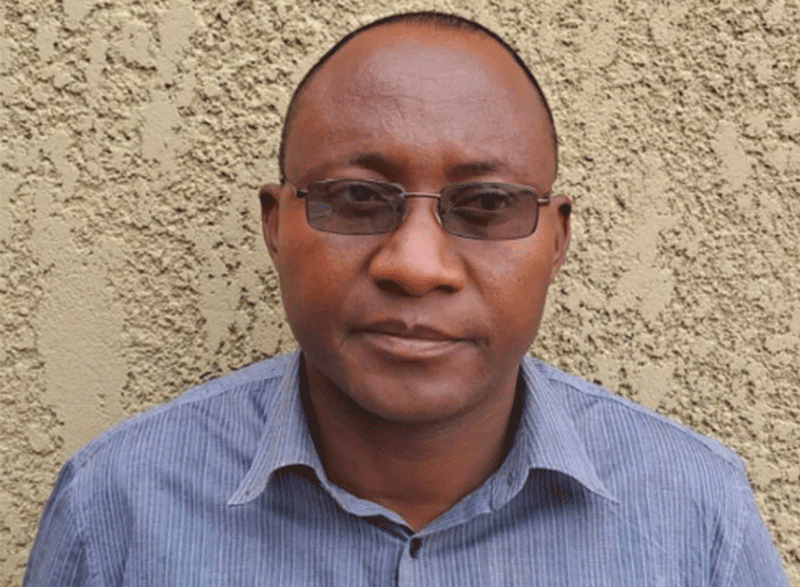
MANY sectors of the economy are suffering as macro and micro-economic environments become more and more hostile to the populace. Inflation is ballooning at whirlwind speed, with salaries being eroded beyond measure.
Critical services are gradually getting diminished, with the health sector facing inordinate challenges arising from mass exodus of workers, poor infrastructure, obsolete equipment, shortage of drugs, poor financing, unstable medical aid cover, to mention but just a few.
The country had done well on COVID-19, but the war seems to be getting tougher when it comes to stemming brain drain and resuscitating the ailing health system in general.
Both public and private health practitioners have struggled for the past months with no one in government paying heed.
It is my view that health practitioners’ grievances would be given an ear by the responsible authorities.
The gravity of brain drain will surely leave indelible marks in the health sector much to the detriment of health service delivery.
Why is government not taking remedial action when its workers are struggling? The following are some of the issues which could have been addressed by now if there was political will:
- Public health workers have for long cried about the meagre and uncompetitive salaries they are getting.
Although other civil servants are complaining about the same, specific attention could have been given to the health sector considering that at least 4 500 health workers have left the country in the last 18 months.
- Harare cancels Pomona waste deal
- Devolution gains remain a mirage
- Harare cancels Pomona waste deal
- Pomona saga: Harare handed shock US$750k ‘garbage’ bill
Keep Reading
This is a record figure since independence in 1980. Until when are we going to continue losing our experienced workers merely because we cannot address their grievances as a nation? Many healthcare facilities are grossly understaffed, much to the detriment of good health service delivery.
- Unfulfilled promises — Government at one time promised non-monetary incentives to health personnel but very few received the incentives which were supposed to come as land, duty-free vehicle imports, residential stands, housing loans, car loans et cetera. Private practitioners were promised agricultural land in 2021 when they approached the highest office in Zimbabwe.
The President saw it fit to appreciate the medical practitioners who had incontrovertibly worked diligently during the COVID-19 pandemic. Two years down the line, Provincial Affairs ministers are still sitting on the recommendation letters from the President’s Office.
The spirit of patriotism naturally fizzles out when one cannot get even six hectares of land in Zimbabwe after having been recommended by the President. Who is sabotaging the President then?
Private medical practitioners have asked for duty-free vehicles (just one in five years) and duty-free hospital equipment, but nothing has materialised.
Why does government not recognise its high-performing citizens so that they are motivated?
Who in the Finance ministry is sitting on such requests yet the country continues to lose thousands of workers to greener pastures?
Can we not turn our brown pastures to green ones by incentivising our critical workers with car loans, duty-free facilities, housing loans, good administration, stands, agricultural land and competitive salaries?
The country boasts close to 60 minerals which have the capacity to generate millions of dollars every year. We have vast tracts of land that are very productive and poverty should not be an issue in our country.
- Private health practitioners complained to the Health and Child Care ministry about exorbitant fees they are being charged by regulatory bodies and local authorities.
Harare City Council charges about US$700 for a surgery licence. Ruwa demands almost the same. Norton is not different. What is surprising is that the regulator, the Health ministry, has done nothing to try to reduce the charges.
The Health ministry demands US$15 000 for one to register a new medical aid society, a figure which is way too high for many locals. The Health Professions Authority of Zimbabwe (HPAZ) is the only body that lowered licence fees following an outcry by medical practitioners. Hats off to HPAZ for listening to practitioners.
There are so many grievances that our government can urgently consider for the betterment of health service delivery.
It is my prayer that urgent action will be taken to address the highlighted issues. Transport minister Felix Mhona should know that motorists travelling along Amalinda Road in Glen View, Harare, are not happy with the state of the road.
It is an embarrassment to have an impassable road in a suburb yet a grader can be dispatched to do regular maintenance. Whoever works in the Transport ministry should act to rehabilitate Amalinda Road and its feeder roads. Who is responsible for Kirkman Road in Mt Hampden? The road has not been completed two years after work started? The Transport ministry is letting the country down.
Grievances are brought forward to be attended to.
- Johannes Marisa is president of the Medical and Dental Private Practitioners Association of Zimbabwe. He writes here in his personal capacity.










